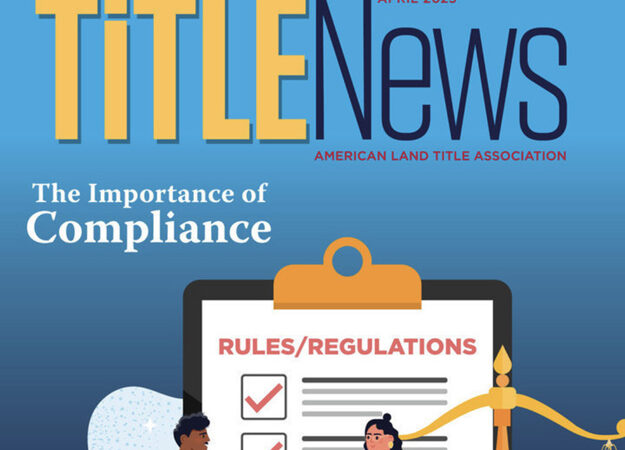Compliance Remains Vital Despite Recent Regulatory Moves in D.C.
In today’s complex business landscape, regulatory compliance is essential for maintaining trust, ensuring ethical operations, and protecting both consumers and the broader economy. Title insurance and settlement services companies that adhere to regulations can not only avoid legal consequences but also build stronger reputations and foster long-term success.
Some companies may be confused about compliance boundaries with the Consumer Financial Protection Bureau (CFPB) and other agencies undergoing substantial changes in leadership and operational directives since President Trump took office. In his capacity as acting director from Jan. 31 to Feb. 7, U.S. Department of the Treasury Secretary Scott Bessent reportedly issued several orders to CFPB staff. A few included:
- Not to approve or issue any proposed or final rules of formal or informal guidance
- Suspend the effective dates of all final rules that have been issued or published but have not yet become effective
- Not to commence, take additional investigative activities related to or settle enforcement actions
- Not to issue public communications of any type, including publication of research papers
On Feb. 7, Russell Vought was appointed as acting director of the CFPB to replace Bessent. Vought expanded the previous directives and reportedly directed bureau staff to:
- Not commence, take additional investigative activities related to or settle enforcement actions
- Not to open any new investigations and cease any pending investigations
- Cease all supervision and examination activity
- Cease all stakeholder engagement
On Feb. 10, President Trump nominated Jonathan McKernan to serve as CFPB director. During his nomination hearing, McKernan testified that under his watch, the bureau “will take all steps necessary to implement and enforce the federal consumer financial laws and perform each of its other statutorily assigned functions. But the CFPB will do this by centering its regulation on real risks to consumers and by focusing its enforcement on bad actors.”
“These directives may significantly impact ALTA members and companies subject to the CFPB’s regulatory, supervisory and enforcement jurisdiction, but it’s important to remember that these instructions to CFPB staff impact only proposed or recently finalized regulations and guidance,” said Richard Welshons MTP, NTP, president of ALTA. “Covered businesses must still comply with rules that are already in effect.”
While it appears the Trump administration intends to significantly scale back the agency’s operations, the law firm Arnold & Porter issued a memo that said Congress created the CFPB as part of the Dodd-Frank Wall Street Reform and Consumer Protection Act.

